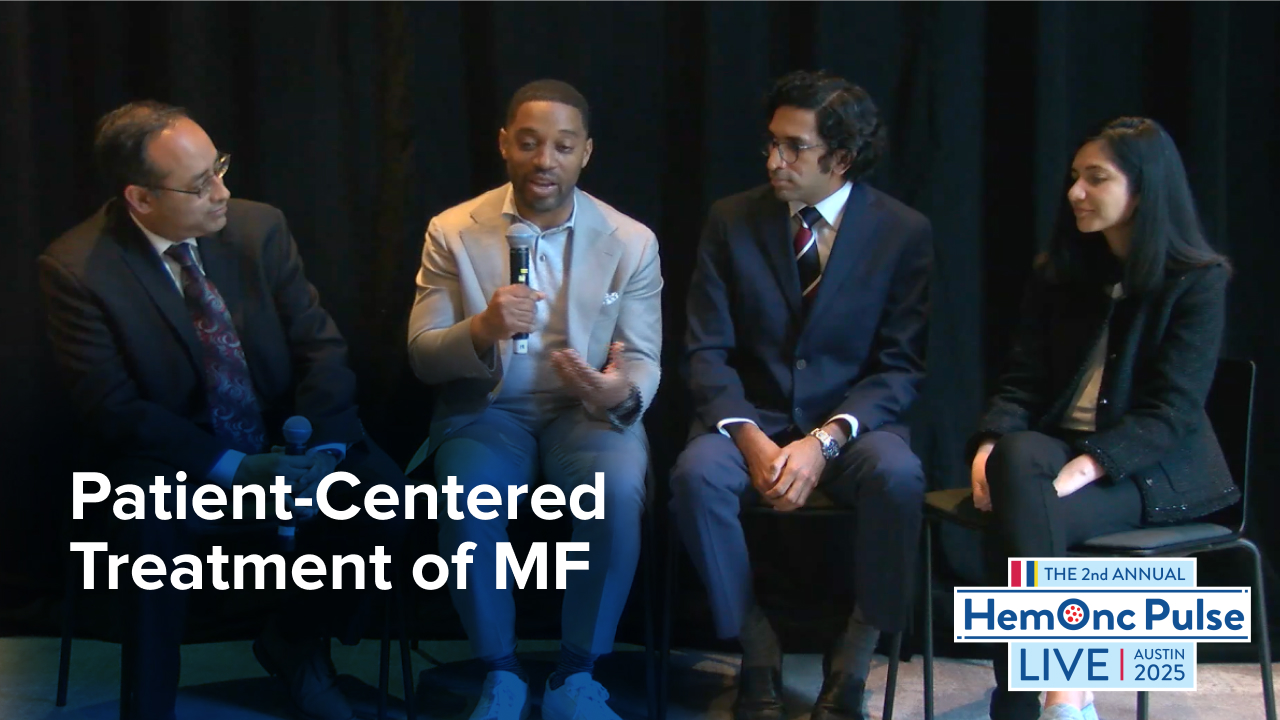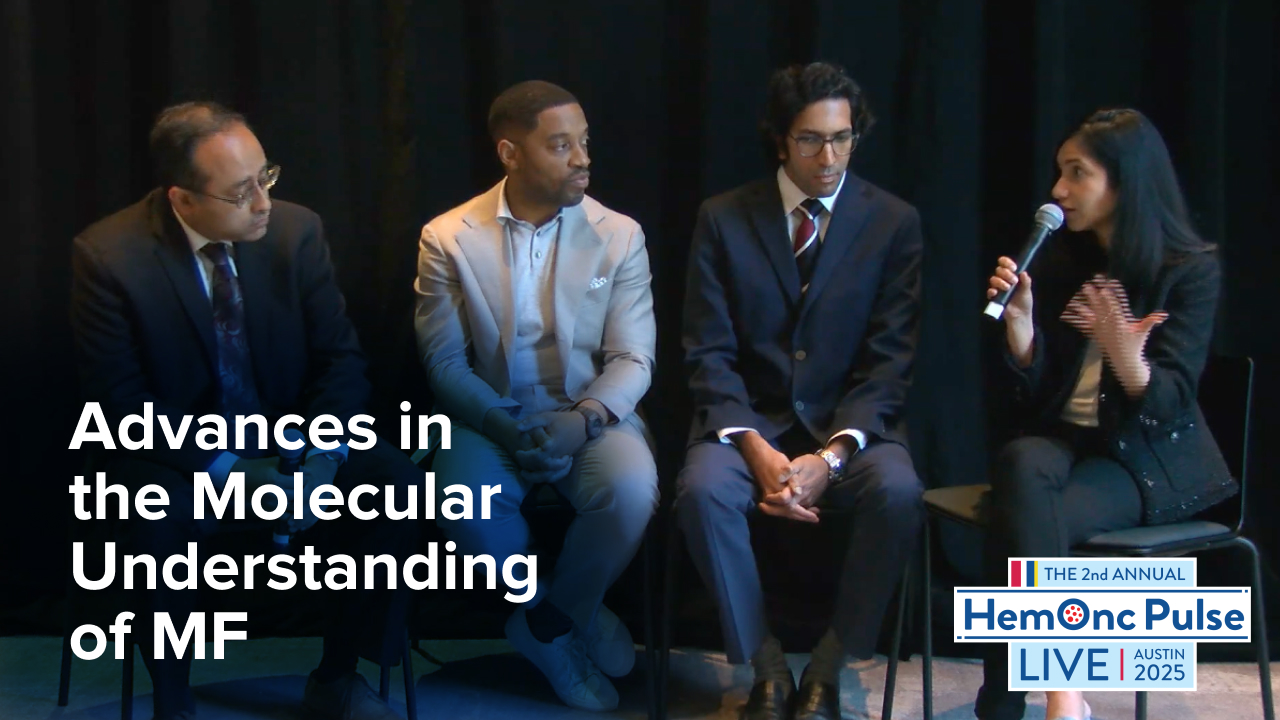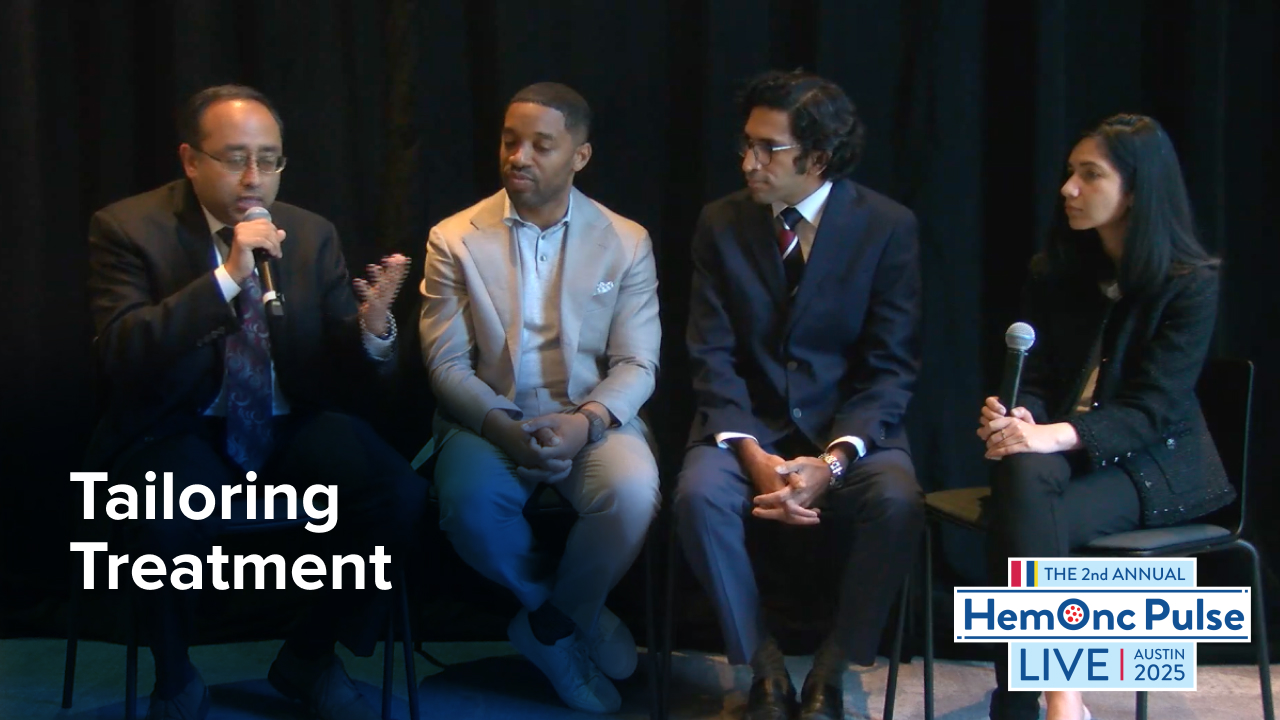
New research confirms previous evidence of the efficacy and safety of luspatercept in myelofibrosis (MF). The results, presented at the 2023 American Society of Clinical Oncology (ASCO) Annual Meeting, demonstrate improvements in anemia and transfusion burden in the myelofibrosis (MF) study sample.
Many patients with MF have anemia, either from the disease itself or from treatment with JAK inhibitors. Researchers led by Aaron Thomas Gerds, MD, of the Cleveland Clinic, conducted a phase II study to examine luspatercept’s utility in MF-related anemia.
The study had four cohorts according to transfusion dependence and ruxolitinib treatment. Cohort 1 was not transfusion dependent and was not receiving ruxolitinib; cohort 2 was transfusion dependent but was not receiving ruxolitinib; cohort 3A was not transfusion dependent and was receiving ruxolitinib, and cohort 3B was both transfusion dependent and receiving ruxolitinib. The median age was 71 years; most patients had primary MF (54.7%), had intermediate-risk 2 disease (75.8%), and were past two years since diagnosis.
Patients received subcutaneous luspatercept 1.0 mg/kg (1.33 mg/kg for patients in cohort 3B who went on to expansion), and titration was permissible up to 1.75 mg/kg in 21-day cycles. The researchers assessed disease response at day 169 and extended treatment for patients who experienced clinical benefit. Then the researchers followed the patients for three years past the final dose.
Mean treatment duration was 42.8 weeks. Cohort 3B had the highest anemia response rate: 26.3% of those patients became transfusion independent, and 31.6% of them were transfusion independent during the entire treatment period. In addition, half of those patients had 50% lower transfusion burden during the primary treatment period, and 21.1% achieved a notable hemoglobin increase.
At day 169, the most common reason why patients discontinued treatment was lack of clinical benefit. About half of the patients experienced at least one adverse event related to treatment, usually hypertension. Only 3.2% of patients had a serious adverse event, one which led to treatment discontinuation. Nine patients died while on treatment, but none of the deaths was considered to be related to treatment. Causes were post-procedural hemorrhage, pneumonia, intracranial hemorrhage, septic shock, ischemic stroke, multiple organ dysfunction syndrome, renal failure, pneumonitis, and MF.
Reference
Gerds AT, Harrison C, Kiladjian J-J, et al. Safety and efficacy of luspatercept for the treatment of anemia in patients with myelofibrosis: Results from the ACE-536-MF-001 study. Abstract #7016. Presented at the 2023 American Society of Clinical Oncology Annual Meeting; June 2-6, 2023; Chicago, Illinois.






 © 2025 Mashup Media, LLC, a Formedics Property. All Rights Reserved.
© 2025 Mashup Media, LLC, a Formedics Property. All Rights Reserved.